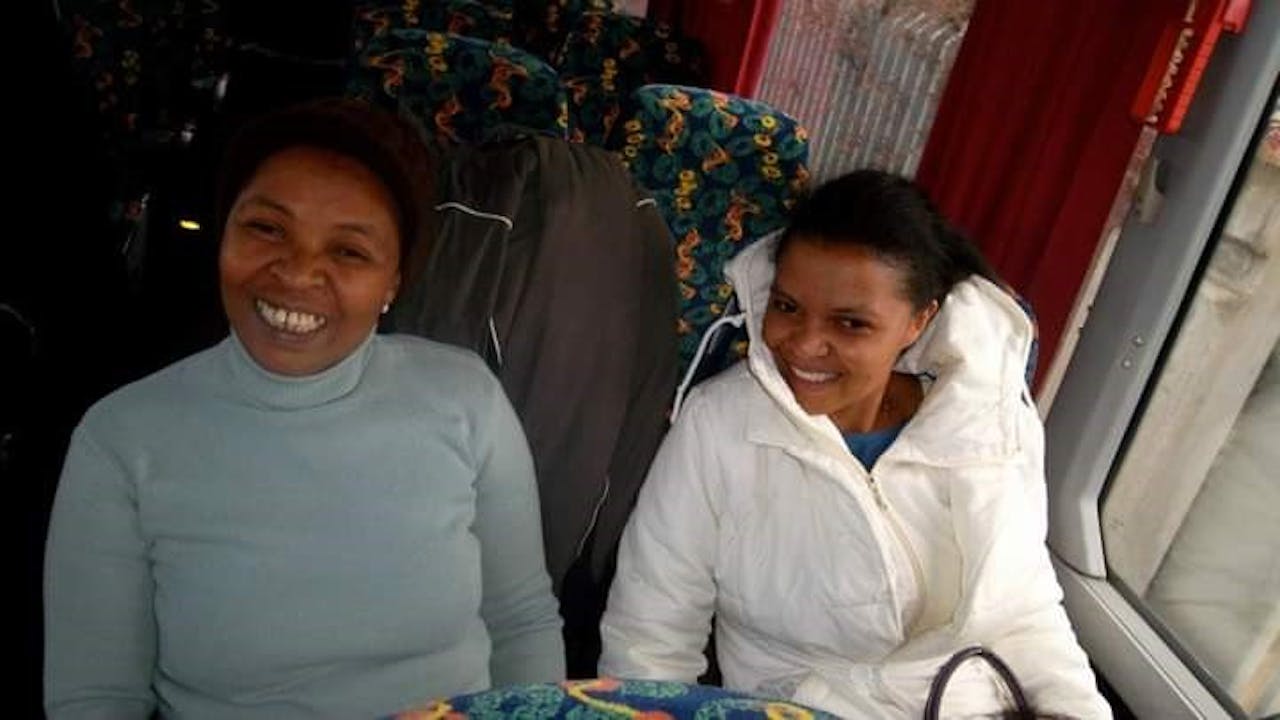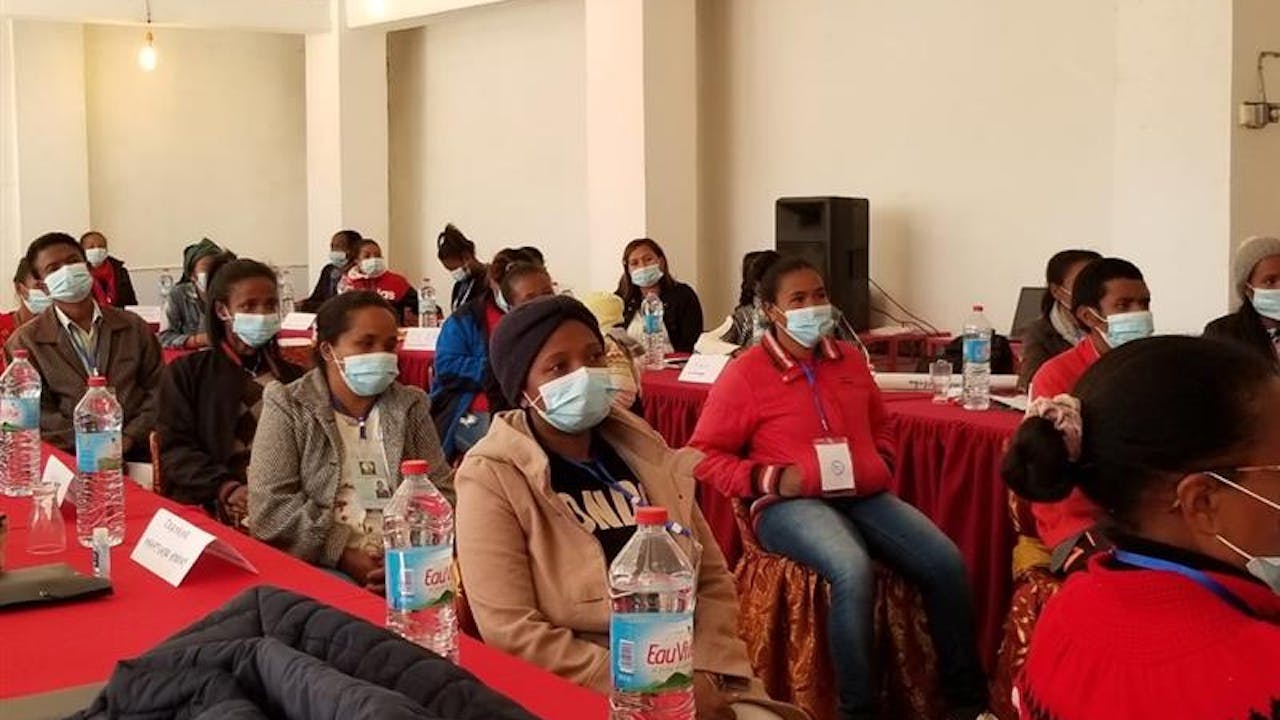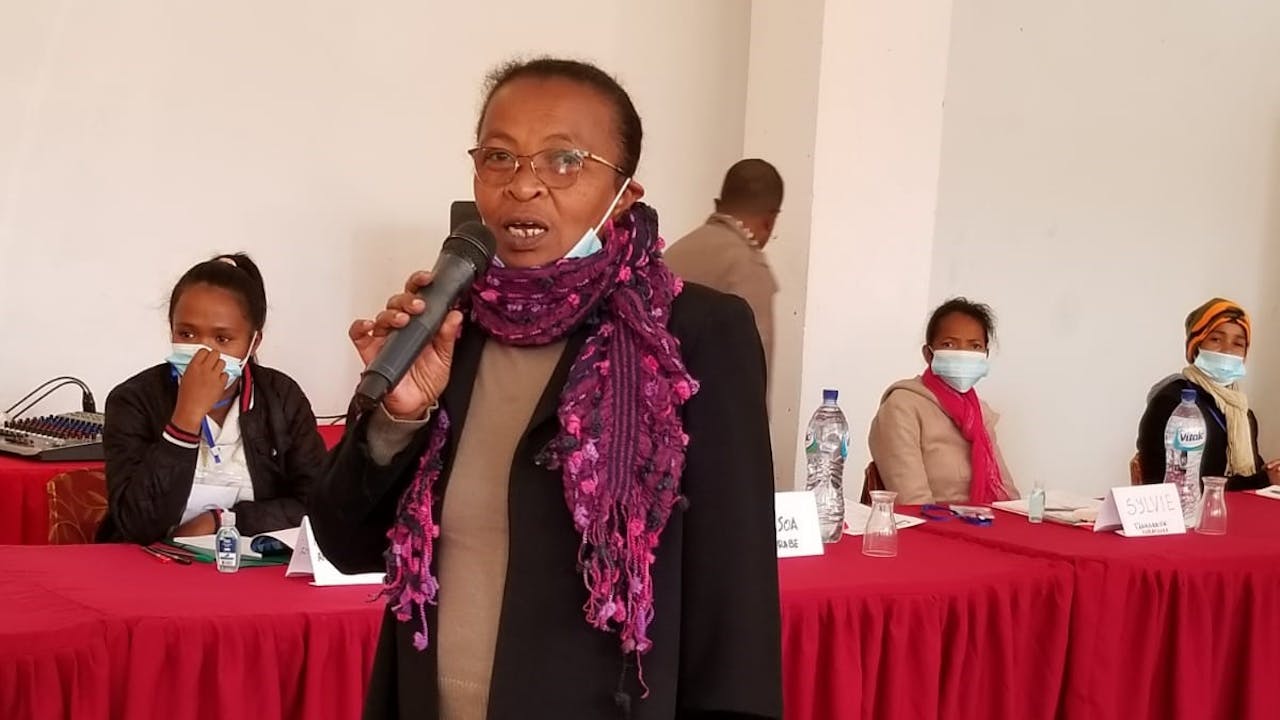My name is Myriam Raharilantosoa. About 25 years ago I started working as a domestic worker, more precisely as a nanny. I became a defender of Malagasy migrant domestic workers after discovering that my daughter was being abused by her employers in Lebanon.
Early on I was hired by a foreigner living in Madagascar, who worked at the French Embassy. I was treated particularly well and was even asked to accompany him and his family to France and later to Lebanon after he was posted there.
I jumped at the chance to join my daughter, Naka who had a job in Lebanon as a domestic worker.
But my daughter was not as lucky as me. I discovered that her employer was abusing her. She had gone to Lebanon with no training or information about the working conditions she would face. She lived in difficult conditions, with an employer who treated her badly.
She told me that she worked every day without a break from five in the morning until midnight, looking after the children, cooking, cleaning, ironing – not only for her employer but also for her employers’ relatives, without extra payment.
They didn’t allow her a day off and forbade her from going to church, which went against the terms of her contract. And her employers locked her in the house when they went out. She wasn’t even allowed to eat with the family. She ate their leftovers.
When she tried to talk to her employers about these issues, they said she had no rights. She was afraid and did not know where to turn.
My daughter cried every night because of her situation and suffered mental trauma. Finally, she decided to run away and went to the agency that had hired her. They sent her to another family but, under the influence of her previous employer, this family also mistreated her. She was eating every other day and had lost a lot of weight. She was also losing her hair.
When my daughter tried to talk to her employers about these issues, they said she had no rights.

I was really sad and depressed when I discovered all this. I was frightened and anxious. I just cried and cried.
I couldn’t stand by and do nothing, so I tried in every way to get my daughter out of the hell she was living in. Finally, I confided in my employer, and they helped me.
We went to a charity who helped us put in a complaint against the employer. It wasn’t easy but for the love I have for my daughter I dared to do it.
I paid USD 2,300 so my daughter could leave this family. You need a guarantor for a new employment contract and there was a family from the French embassy that did the negotiation.
Through my meetings with other domestic workers in Lebanon, I learnt that when they arrive in the country the police often take their passports and then they have to wait in a room like a cell until their employers come to pick them up. Sometimes their mobile phones are confiscated so they really are alone.
If they arrive through an agency, at least they can contact them if they have problems but if they’ve arrived through clandestine routes they are at the mercy of their employers.
In addition, many Malagasy domestic workers who go to work in Lebanon do not speak Arabic, French or English, which makes communication with their employers difficult and leaves them vulnerable.
Through the different steps I took to help my daughter I got to know and work with different organizations that defend the rights of domestic workers in Lebanon, including the International Labour Organization (ILO).
From then on, I started to campaign for the rights of domestic workers, not only for the Malagasy in Lebanon, but for all workers who are victims of abuse and mistreatment.

My daughter and I when we were working in Lebanon. The struggle for my daughter's rights has now become a struggle for all domestic workers in Madagascar.
© ILO/OIT Myriam RaharilantosoaAt the end of my contract in Lebanon, I decided to return to Madagascar. My experience in Lebanon taught me a lot about domestic workers’ rights and protections, especially migrant workers.
With this knowledge and along with other returning domestic workers, we decided to set up the National Union of Domestic Workers of Madagascar (SENAMAMA). The union was formally founded in September 2019, and I served as interim president before being officially elected to the position at the first National Congress in July 2021.
Originally, we were eight active members, mainly ex-migrant workers returning from Lebanon, but we managed to mobilize other members through word of mouth and radio announcements. Later, following different awareness-raising activities and with the help of the IFDW [International Domestic Workers Federation] and ILO, many members joined our organization and we now have almost 2000 members.
Our main objective is to protect domestic workers, prevent and deal with abuse, non-payment of wages, illegal wage deductions and lack of social protection. Many Malagasy domestic workers are still victims of violence and abuse, sexual and moral harassment or even rape. Moreover they have very low pay, which generally varies from 40,000 to 100,000 Malagasy Ariary (USD 10 to 25) per month.

Participants from Antsirabe, Fianarantsoa and Antananarivo at the first national congress of SENAMAMA held in Antananarivo on 1 and 2 July 2021, which included the participation of the Union of Autonomous Trade Unions of Madagascar.
© ILO/OIT SENAMAMAOur main activities focus on advocacy, training and awareness-raising among workers. Our organization took part in the process of revising Madagascar’s Labour Code and aligning it with the ILO Domestic Workers Convention, 2011 (No. 189). As part of this we helped define the term "domestic worker" and contributed to the introduction of a standard contract. Together with the ILO we also supported the Malagasy government in the repatriation of over 300 Malagasy migrant workers during the COVID-19 health crisis.
In the long term our aim is to help domestic workers advocate for the protection of their rights, both in Madagascar and abroad, and influence policy discussions in areas that directly affect them.
Our main objective is to protect domestic workers, prevent and deal with abuse, non-payment of wages, illegal wage deductions and lack of social protection.

Despite the many challenges, the SENAMAMA union remains optimistic that domestic workers in Madagascar will have a better future. This vision requires the participation and commitment of the various actors on the ground, including the State so that the legislation is implemented, workers' rights are monitored, employees are able to access social security and health coverage, and employees themselves unite their voices to fight against injustice in their work.
My daughter is back in Madagascar now, working for a foreign family. She is well and is a member of SENAAMAMA, helping domestic workers in distress. My struggle for her rights has now become a struggle for all domestic workers in Madagascar.

I will continue to speak out for the rights of domestic workers from Madagascar.
© ILO/OIT SENAMAMA